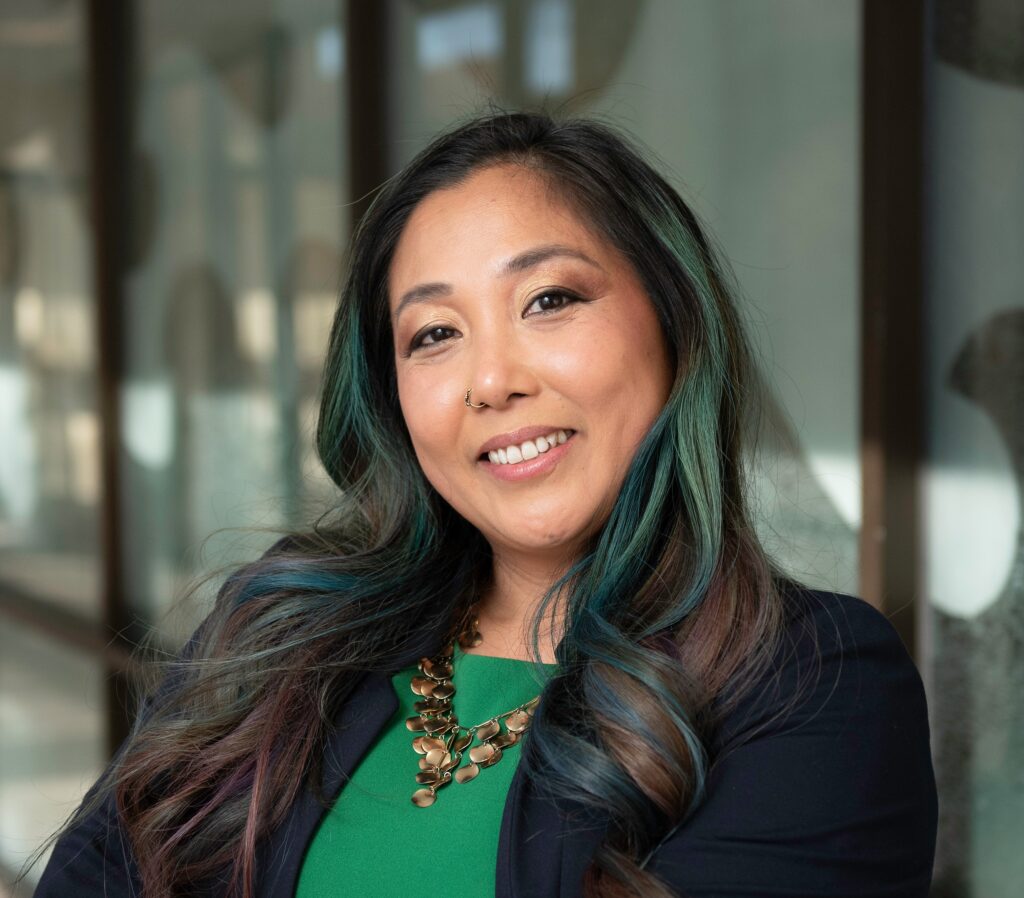Quyen M. Ngo, PhD, LP, Executive Director, Butler Center for Research, Hazelden Betty Ford Foundation

What is your current role?
I joined the Hazelden Betty Ford Foundation in January of 2020, prior to which I was faculty at the University of Michigan. As executive director of the Butler Center for Research, I lead the research arm. This includes oversight over all our clinical trials and other research studies as well as leading our efforts to leverage clinical and organizational data to track patient outcomes, support clinical quality and patient safety, and promote a culture of being a learning health system.
Why did you join the TRUST?
I joined the TRUST in 2022 at the encouragement of my colleague, Melissa Fors Shackelford. She knew that I had moved to Minnesota in the midst of the pandemic and had struggled to develop a network of colleagues. I just recently joined the Membership and Marketing Committee and look forward to learning more about how I can support the growth of the TRUST.
What has been your favorite part of being a member of the TRUST?
I have loved getting to know other women in the health care field. I have learned a great deal from the women that I have met and have also developed some inspiring friendships!
What is the best career advice you’ve received?
Always have a variety of mentors; inside your organization/department and outside of it. It brings different perspectives and guidance, and you’re never too senior for mentorship.
Can you share a pivotal moment in your career that significantly influenced your leadership style or professional path?
In 2019 I thought I would be an academic for the rest of my life. I had spent most of my life in academia and it was all I knew. But I was so stressed and unhappy. I struggled every day to convince myself that I was meant to be an academic. In 2019, it was time for me to go up for promotion, but I was miserable and struggling for many reasons related to my work. Then one day as I was sitting with my son, he quietly said, “Mommy, I HATE your job.” My son, who never talked about his feelings, had never said anything like that before. I realized that my sadness, my stress, my misery, was deeply impacting my children, and I could either grow my academic career, or I could grow good people. I knew I didn’t have it in me to do both. So I threw a prayer out to the universe, and two weeks later was contacted by a recruiter for the Hazelden Betty Ford Foundation. It was a hard transition out, but I have never regretted my decision.
What strategies do you use to build effective teams and promote collaboration?
I have two particular principles I try to adhere to when building and leading my team. The first is that the working relationship is a two-way street and both parties need to benefit. When I am invested in my team’s views, well-being, and professional development, it benefits the team as a whole. I try to check in regularly with my team about broader career goals and aspirations, regardless of whether those goals and aspirations mean they stay with me and our team or move on to new opportunities elsewhere. This does not mean I do not try to retain good people. However, I feel strongly that if you try to hang on too tightly to good people, it hurts them, it hurts the team, and it does not allow for new connections and growth.
The second principle is that everyone, regardless of education, brings unique and important experiences and expertise to the team. My team members have complementary skills and expertise so we can fill each other’s gaps in strength and learn from each other. Formal education is not required for us to bring our own wisdom into professional conversations and the entire team benefits from all of the various walks of life that inform who we are.
How do you advocate for inclusion, diversity, equity and access (IDEA) within your organization or in the broader health care community?
I am very intentional when hiring to focus on skilled and qualified candidates who also bring a diversity of experience and background to the team. I work hard to make space for candid conversations about the experiences of individuals with marginalized identities, while also making space for White, CIS gender allies to learn and make mistakes (with the expectation that we grow from our mistakes). Finally, I work hard to ensure there is equity in opportunities for growth for each team member.
Words of wisdom to live by?
Each of us has all of the power, wisdom, and compassion we need for our own healing and growth.